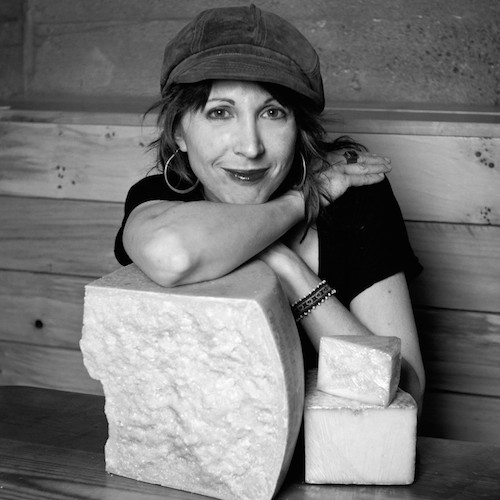
“I have the best job in the world. If I’m unhappy, it’s a failure of imagination.” —Anthony Bourdain
I met Anthony Bourdain in the summer of 2012, when “The Layover” was taping at my former place of work, a now-shuttered cheese shop in Seattle. Like so many, I’d been an ardent fan since reading Kitchen Confidential, his ground-breaking memoir-cum-expose on the dirty underbelly of the restaurant industry.
That book launched his career and, as has been well-documented, turned the former chef and recovering addict into one of the world’s greatest authorities on food, culture, and travel. Bourdain was a complex man of giant contradictions: Fiercely opinionated yet insatiably curious, cantankerous yet compassionate. Of the recent chef and restaurateur scandals exposed by the #MeToo movement, he’d of late seemed a curious mix of furious yet apologetic for his industry’s- and what he perceived as his own- failings.
None of us can ever know why he chose to end his life and regardless of how you felt about him, there’s no disputing the fact that Bourdain put himself out there in person and in print and on television. He deplored inauthenticity and celebrated the common man (and woman) through his deep-dive, documentary-style television shows. He exposed millions of viewers to culinary traditions and foods that have sustained cultures and families for generations and approached the cultural aspects of cooking, eating and wandering the globe with a fervor and intellect that is more often seen in academics trained in anthropology, sociology, political science and world history. Bourdain made food and travel greater than the sum of their parts, and for that, we should thank him for his not inconsiderable gifts.
Whatever personal demons Bourdain suffered- and he never shied away from admitting his quirks, neuroses and bad habits- he was also a man who adored his young daughter, was respected by his peers and was in the rarefied position of more or less writing his own ticket, it would seem. None of us can possibly fathom the pressures he faced nor the internal struggles related to being responsible for so many employees. The greatest tragedy is that he was clearly suffering and saw suicide as the only recourse.
We’re facing a mental health epidemic in this country of epic proportions and by remaining silent about our struggles (I, too, suffer from depression and this morning, after learning of Bourdain’s suicide, I made a promise to start using my journalism to help destigmatize this often-insidious disease), we perpetuate the shame.
The only good that can ever come from high-profile suicides like those of Anthony Bourdain, Kate Spade, and countless other “celebrities” is a greater awareness of mental health issues and the need for more funding and better ways to provide help and treatment for all. A digital or print footnote for a suicide hotline isn’t a solution.
After “The Layover” taping (during which, he charmed all of us with his off-the-cuff comments and obvious love of cheese/repeated requests for “just one more” sample) at the shop completed, I shyly approached Bourdain, holding a copy of my recently published book, Cheese for Dummies (written with culture co-founder Lassa Skinner). Aware of the fact that his life was one of constantly being accosted by fans demanding things from him, I apologized for bothering him and said, “I’m in no way trying to make it look like you’re endorsing this, but would you mind taking a photo with me while I hold my book?” He graciously complied, and after I thanked him, I said, “Have a great time in Seattle.”
He put his hand on my shoulder, gave me what by all appearances was a genuine smile, and said, “I always do.” And with that, Bourdain left the building.
Bourdain has left the building, and television- and the world- will mourn the loss, but his legacy, books, articles, interviews and reruns will remain. As the man himself once said, “If I’m an advocate for anything, it is to move. As far as you can, as much as you can. Across the ocean, or simply across the river. Walk in someone else’s shoes or at least eat their food. It’s a plus for everybody.”
Rest in Peace, Mr. Bourdain. We miss you already.





The pain is a hole even his smile will not fill. Peace